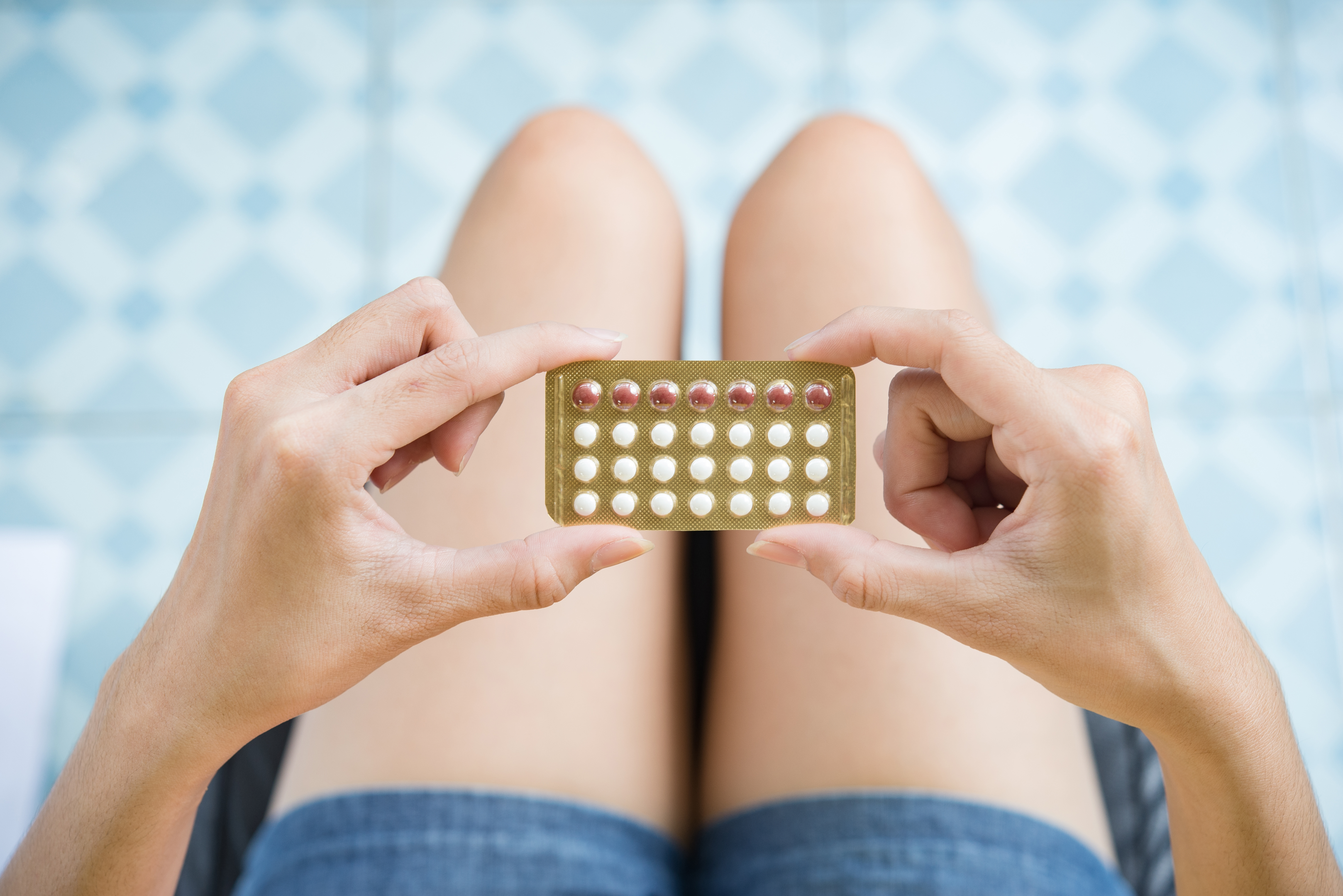What's The Difference Between The Combined Pill And The Mini Pill?



The oral hormonal contraceptive pill, also known as "the pill," is still one of the most prevalent forms of birth control in the world. And, despite its broad definition, there are two types of pills: combined pills and mini-pills.
So, what's the difference between a mini pill vs the combined pill? Several people are unaware of the distinction between these pills or that they even exist. So we decided to make it as simple as possible to understand.

One common misconception is that the mini pill simply holds lower doses of the combined pill's ingredients. The real distinction between the two is that the combined pill includes two types of hormones (oestrogen and progestogen), whereas the mini pill only has progestogen.
Aside from the ingredients, the two types of pills differ in how they are administered. The combined pill is meant to be taken once a day for three weeks, followed by a seven-day pill-free break, whereas the mini pill is intended to be taken once a day. So you will have a period during the 7-day break on the combined pill, but since there is no break on the mini-pill, you will likely have irregular menstrual cycles and possibly no periods at all.
The combined pill contains oestrogen and progestogen, which stop ovulation and thus prevent pregnancy. It also thickens the mucus in the cervix (womb's neck), making it difficult for sperm to pass through. Simultaneously, hormones can narrow the womb's lining, making it more challenging for a fertilised egg to implant and develop in the womb.
You take the pill on the first day of your period and take one daily. If you begin taking the pill on the first day of your period, you will be protected against pregnancy from the beginning. The combined pill is taken 21 days out of the month. Numerous people who take the pill will take a 7-day break between packs, during which they will experience light 'withdrawal bleeding.' According to the new guidelines, the 7-day break is no longer required, and people can choose not to take one. When you get the prescription, talk to your doctor about your options.

The progestogen hormone is the only one contained in the mini pill. It works by thickening the mucus in the cervix (neck of the womb), preventing sperm from passing through. Simultaneously, progestogen can thin the lining, making it challenging for a fertilised egg to implant and develop in the womb.
The mini-pill doesn’t prevent ovulation, but the desogestrel pill prevents the ovaries from transmitting eggs. People who cannot take oestrogen-containing medications may benefit from the mini pill.
If you're thinking about starting the pill, talk to your doctor or a sexual health practitioner about which type is best for you.
The mini pill is usually taken on the first day of your period. From the first day, you take the pill, you are protected against pregnancy.
The mini pill is taken daily for 28 days per packet. There is no break on the mini pill; you begin a new packet the day after you finish one.
The combined pill is almost 99% effective at preventing pregnancy when taken correctly. Nevertheless, based on "typical use" (how it is used in real life rather than in an ideal world), the efficiency is around 92%. In addition to being effective means of preventing pregnancy, the combined pill can also assist you in controlling your menstruation.
It can also help to alleviate PMS symptoms such as headaches, mood swings, and bloating. By preventing ovulation, the combined pill lowers your risk of ovarian and endometrial cancers. Several types of combined pills can also help in the treatment of acne or greasy skin.
Even though the hormone ingredients are slightly different, the mini pill is just as effective as the combined pill in preventing pregnancy. They depend entirely on the progestogen to do this because they lack oestrogen. The mini pill can prevent pregnancy without stopping ovulation by thickening cervical mucus and thinning the uterine lining.
The mini pill's main advantage is that it is relevant for those who cannot indulge in oestrogen and can also be taken while breastfeeding. It can also be taken by those with health issues (such as high blood pressure or a high risk of blood clots) and at any age.

Although it is a popular option, the combined pill is not without drawbacks. The pill, like most hormonal contraceptives, can cause undesirable side effects such as weight gain, breast tenderness, nausea, spots, and depression. However, not everyone who takes the pill will experience these side effects, and certain brands of the pill may suit you better than others.
The combined pill raises your risk of blood clots, heart attack, and stroke, but the risk is very low, and all contraceptive pills include additional information on this.
Once more, the mini-pill may have side effects, but you may find that they are more severe than with the combined pill. Some women have irregular menstrual cycles, decreased libido, acne, and an increase in the amount of hair on their face, chest, and back.
The mini-pill is also most likely not the best contraceptive alternative for people who don't take the pill at the same time every day. While the combined pill allows for a day or two of wiggle room (as long as you take an extra pill to make up for the missed dose), the mini-pill must be consumed simultaneously every day. If you miss the exact time by more than three hours, you may not be protected against pregnancy and might need to use extra contraception (like condoms).
While each type of pill has advantages and disadvantages, they provide effective pregnancy prevention. It's all about determining which type of pill (indeed, which brand) is best for your body. However, it is crucial to remember that no pill protects against STIs, and you must always take extra precautions to ensure your sexual health.
If you are looking for supplements, check here. Always remember to consult your doctor first before taking the pill or any sort of contraceptive.








Plus get the inside scoop on our latest content and updates in our monthly newsletter.